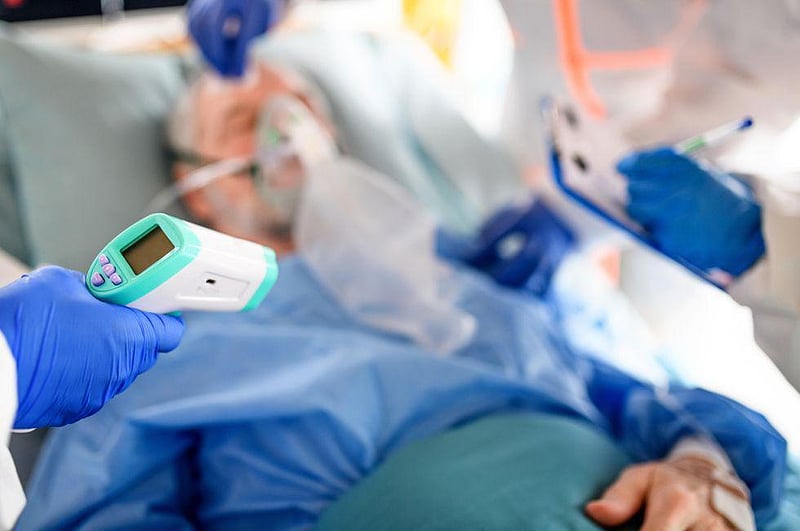Get Healthy!

- Posted March 7, 2022
Heart Defects Could Raise Odds for Severe COVID-19
People who were born with a heart defect have a nearly doubled risk for severe COVID-19 illness or death and need to get vaccinated, wear masks and take other steps to protect themselves, researchers report.
Those patients at the highest risk for severe COVID-19 were 50 and older, men, and those with other health conditions such as heart failure, pulmonary hypertension, Down syndrome, diabetes or obesity, according to the study.
"People with heart defects should be encouraged to receive the COVID-19 vaccines and boosters and to continue to practice additional preventive measures for COVID-19, such as mask-wearing and physical distancing," said study author Karrie Downing. She's an epidemiologist at the U.S. National Center on Birth Defects and Developmental Disabilities and the COVID-19 Response Team at the U.S. Centers for Disease Control and Prevention.
"People with heart defects should also consult with their health care teams about additional steps to manage personal risks related to COVID-19, given the significantly increased risk of severe infection and serious complications," Downing added.
The study analyzed data on more than 235,600 hospitalized COVID-19 patients in the United States collected from March 2020 to January 2021. Of those patients, 0.2% had a congenital heart defect.
While 68% of the COVID-19 patients with a heart defect also had at least one other health condition, the rate was 59% among those without a congenital heart defect.
The study found that 54% of those with congenital heart defects and 43% of those without a defect were admitted to intensive care; 24% of those with congenital heart defects and 15% of those without a defect required a ventilator to breathe, and 11% of those with congenital heart defects and 7% of those without a defect died during hospitalization.
Patients with congenital heart defects remained at high risk for severe COVID-19 even when they were divided into categories by age or other health conditions.
The findings were published March 7 in the journal Circulation.
"More work is needed to identify why the clinical course of COVID-19 disease results in significantly worse outcomes for some hospitalized patients with risk factors for critical COVID-19 illness, like heart defects, and not for others," Downing said in a journal news release.
There are more than a dozen types of congenital heart defects, which are the most common birth defects worldwide with a prevalence of 157 per 100,000 in 2017, according to the American Heart Association.
More information
There's more on congenital heart defects at the U.S. National Heart, Lung, and Blood Institute.
SOURCE: Circulation, news release, March 7, 2022







